The Metamorphosis of Mindy Kaling
Starting with her rise to fame on 'The Office' to now creating some of streaming’s biggest hits, the actress, writer, and producer has transformed Hollywood. But her most fulfilling project yet is happening behind the scenes—as a mother, mentor, and mogul.
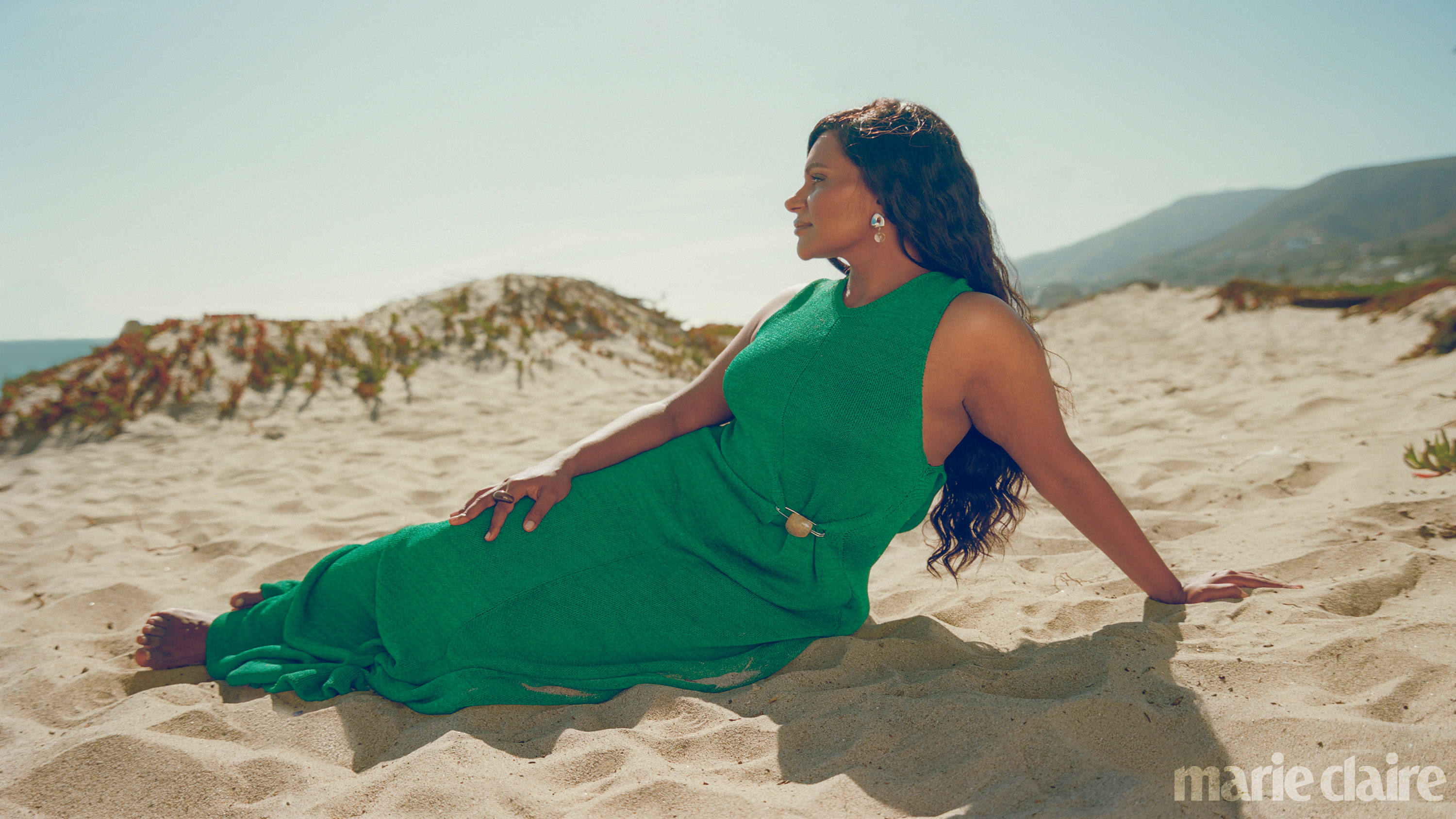
You know a Mindy Kaling one-liner the instant it’s been delivered.
Off-the-cuff yet wickedly observant. Zeitgeisty, colored with irreverence. And, most importantly, dripping with such sincerity you’re left wondering, Was she being serious?
“No one can give your children candy except for you, because it's, like, such a hostile act in L.A.”
The quip is dropped, not on set or in a writers’ room, but in a casual eatery in Malibu as Kaling hands me a Tony’s dark chocolate bar pulled from a bag of sweets she’s purchased for her kids—a Ring Pop for her daughter, Katherine, a variety of confections for her son, Spencer—at a shop next door. The remark goes as swiftly as it came; Kaling is now detailing the ethical practices of the candy company.
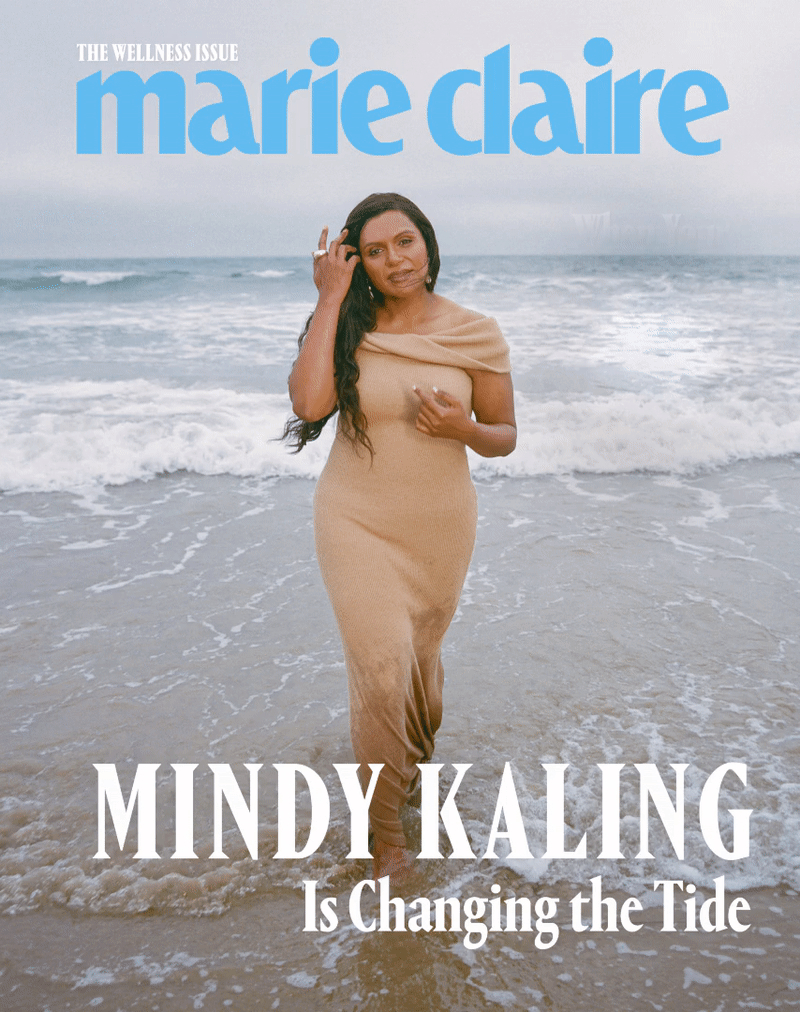
“They pointedly never use slave labor, which I think is good…but the chocolate’s good too.”
We settle in at the restaurant, just down the road from her beachfront home. (“It was this incredibly extravagant 40th birthday present to myself.”) Soon after debating what to order (she settles on the Hong Kong style catch of the day and orange juice), the topic turns to something else Kaling has been contemplating of late: spearheading Katherine’s school’s Diwali celebration this October.
“It will just force me to learn a lot about it…. It felt kind of challenging [and] scary in a good way.” The irony is not lost on her that she has become the pop culture poster child for the Hindu celebration thanks to the season three Office episode she penned, titled “Diwali.”
“It’s getting so mainstream now,” she muses, mentioning the media’s coverage of the parties thrown by South Asian A-listers (Lilly Singh, Priyanka Chopra, herself) last fall. But she seems wholly unaware or at least convincingly unassuming that the mainstreamification of Diwali is not a happy coincidence but owed largely to the ubiquity of Kaling herself.
Get exclusive access to fashion and beauty trends, hot-off-the-press celebrity news, and more.
Netflix Head of Global TV Bela Bajaria, who was a part of greenlighting Kaling's Never Have I Ever at the streamer, says she can still “remember vividly” when that Office episode aired in 2006 “and how defining that was, to actually talk about Diwali in a [broadcast network] comedy in that way.
“It was very groundbreaking at that time.”
While the Diwali episode continues to be a defining moment for Indian Americans (and The Office’s popularity has only ballooned in recent years thanks to syndication deals), Kaling hasn’t seen the NBC comedy since the series concluded in 2013. Not because of any ill will towards it, she’s just been there, done that. “When I was [working on it], I watched the cuts so many times,” says the former writer (she’s responsible for 26 episodes), director (of two), and co-executive producer. She’s perfectly pleased to talk about playing Kelly Kapoor with the “random teenage boys” who approach her at the airport, but it’s her daughter she’s excited to one day share it with.
“My hope is that she'll be 12 or 13, and kids will be talking about it at school, and then she'll want to watch it and I can show it to her.” Due in part to her kids’ ages (4 and one-and-a-half) and that they are growing up during the pandemic, she says they haven’t really been exposed to their mom in the public eye. She’s still figuring out how to broach topics like fame with them. (“This is reminding me that I should probably have some kind of a conversation memorized to talk to her about [it].”)
She jokes—I think—that she doesn’t make many conscious parenting decisions (“we’re just getting by”) but she does, for now, have a few guiding principles: She won’t post pictures of her kids on social media and she won’t discuss their conception stories.
Kaling isn’t trying to be secretive or press-shy. She simply wants to safeguard their privacy, give her kids a chance to learn and tell their own stories in their own time. One day, when they feel ready, she says she’d gladly speak publicly, even write a book with her daughter (or have Katherine write it herself) about their family’s journey.
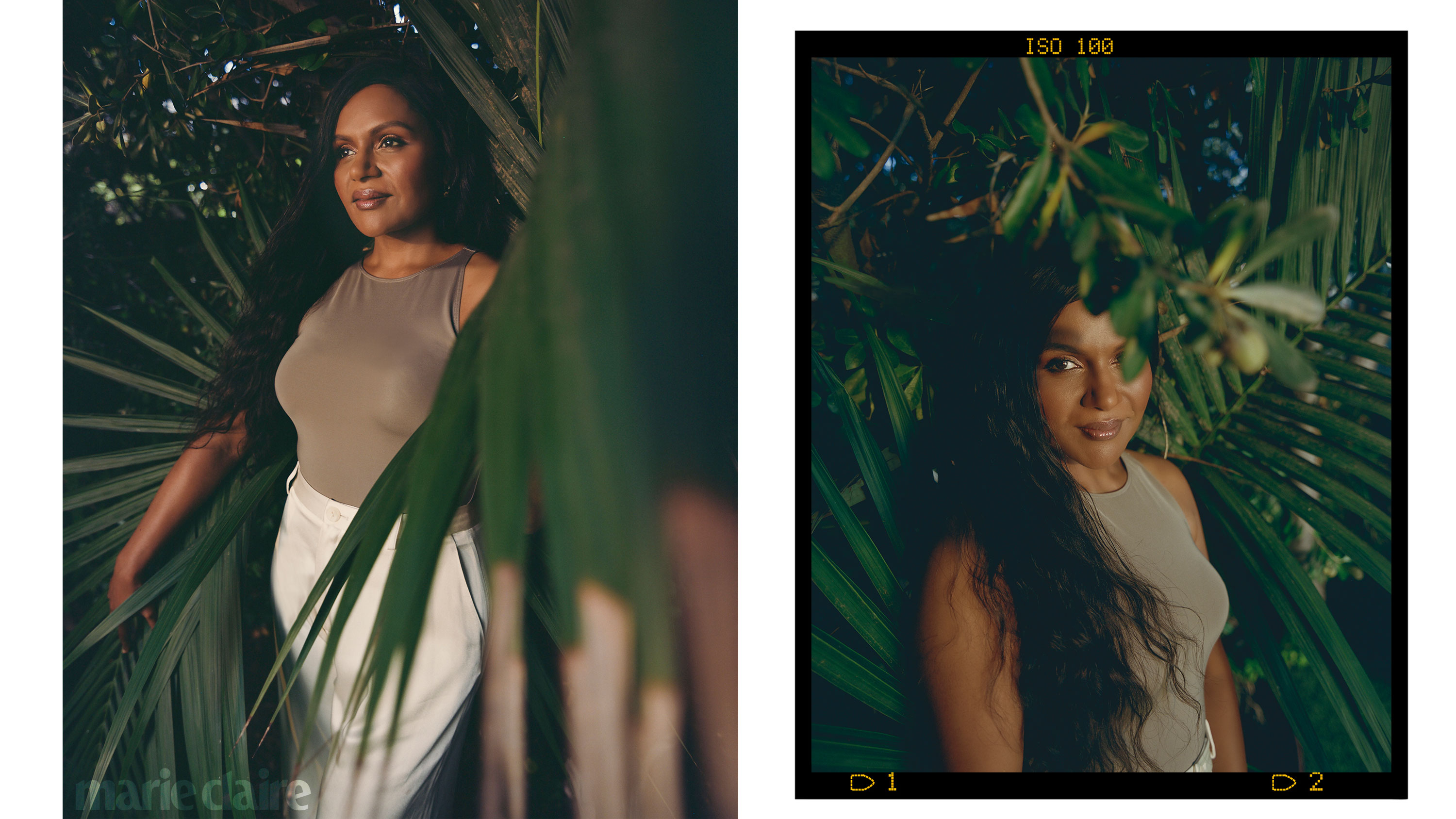
Lapointe bodysuit and pants, Bulgari earrings. For a micro-shimmer finish, prep skin with Live Tinted Hueguard ($32) then apply Hueglow in Dusk ($34).
“I want them to be old enough to talk to me about it and [tell me] how they want me to talk about it,” she says. “I'm the only parent my kids have…I think I err on the side of super cautious so that there's less things that they can potentially be mad at me about down the line.”
The 43-year-old is more forthcoming when discussing her decision to become a mom in her late-thirties, when she says she felt the most financially stable and secure in being a single parent. “I waited until I had the means and that made all the difference.” She pointedly addresses the privilege in her statement, noting the recent overturning of Roe v. Wade. “The choice to have a child—by yourself, on your own terms—it was the best part of my life...It's the thing that I hope women feel confident doing by themselves.”
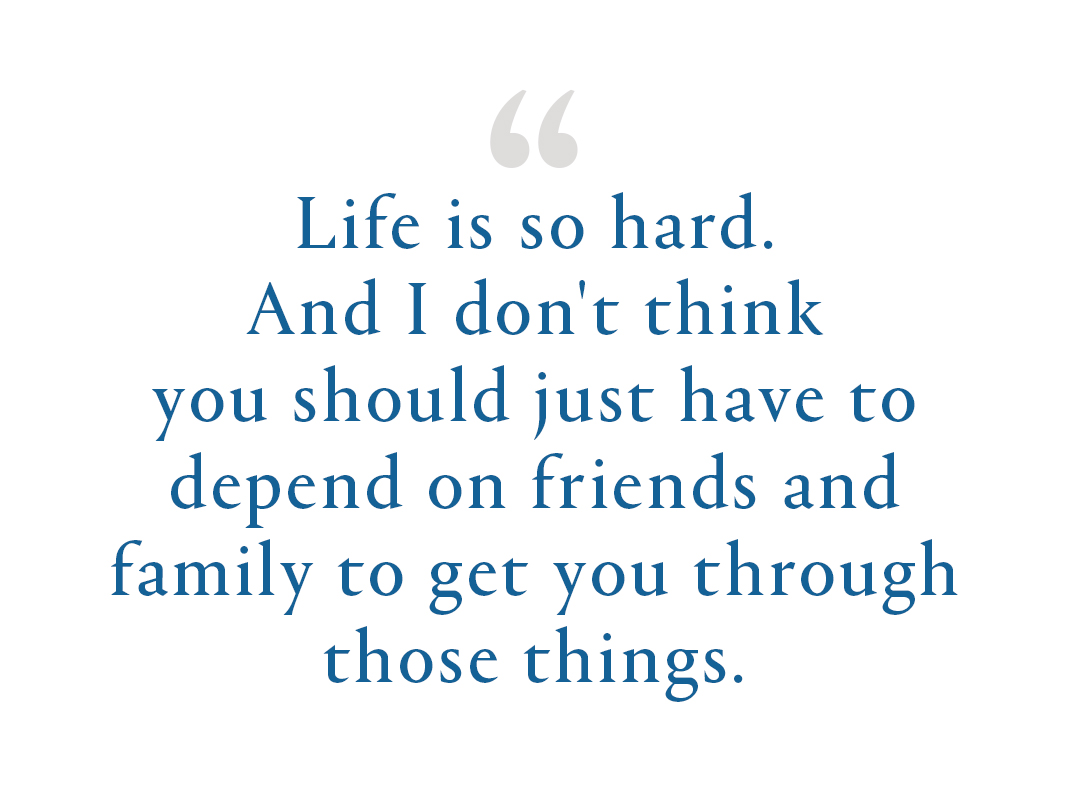
Before moving off the topic, she offers up her number one piece of advice to all women: freeze your eggs. She wishes, she says, that the cost of freezing eggs was cheaper and is open to joining the boards of or investing in companies that could provide more accessible healthcare options in that regard.
“I wish every 19-year-old girl would come home from college and that the gift—instead of buying them jewelry or a vacation or whatever—is that their parents would take them to freeze their eggs…They could do that once and have all these eggs for them, for their futures…to focus in your twenties and thirties on your career, and yes, love, but to know that when you're emotionally ready, and, if you don't have a partner, you can still have children.”
It’s that kind of unambiguous and seemingly radical insight that has made Kaling, in some ways, an Indian parent’s worst nightmare (children out of wedlock? Gasp!) and also the defining voice of first-generation Asian Americans. She has led the charge for a generation of brown girls to boldly go where no brown girl has gone before: (To a non-Ivy! Just kidding.) To a place of comfortability speaking up and out about topics—mental health, grief, depression, sex, dating, longing, desire—that remain taboo in Asian American culture.
But being at the forefront of destigmatizing wellness for women of color in film and television wasn’t always the plan. It simply dovetailed with her own journey and growth—through becoming a mom, through finding security in her success.
“I think in my twenties I was only focused on, Okay, I don't want to get fired. I want to be successful, and I was only thinking about myself,” she says. “In no way was I thinking about things that are the most important to me now, which is my health, holding the door open behind me for other people… I kind of lived a way more selfish existence, which is also boring…[Now] I'm surrounded by so many more people. My immediate family, obviously, with my children, but also this community of young women on my show.
“When I write shows about Indian women and what they're interested in, I want to do something original, but I also don't want to shy away from things that I've seen before: obsession with success; elitism about schools. Those are things that were real in my family, and I've been dealing with that. But also what's really important was destigmatizing mental health.”
Kaling’s own foray into understanding wellness was driven by the death of her mother, Swati Chokalingam, in 2012 to pancreatic cancer. “I can only describe it as just anguish for two years,” she says of the grief. Her eyes swell with tears and she momentarily avoids my gaze, but her voice remains steady. Amidst launching The Mindy Project and “working 14,16, hours a day,” Kaling made the decision to begin seeing a therapist—every Saturday at 11 a.m. for one year—to process the loss.
“Ultimately, it's about efficiency. I think you can get things done more if you're able to talk to the right people about the things going on in your life,” she says. “I remember thinking, This is extremely helpful, but this would have even been helpful when I was younger, when I had issues…Life is so hard. And I don't think you should just have to depend on friends and family to get you through those things.” She hasn’t returned to therapy since that time but “would not hesitate to go back if I felt I needed to.”
Now, her mental health is directly tied to “the restorative power of a run,” something she does daily. “I'm always so self-conscious talking about how much I love running because I don't look like someone who's athletic or anything. But it has really helped me...It just focuses me and makes me a better writer. I think I'm a friendlier person, a more patient mom.”

“It doesn't bother me," Kaling says of the rumors about B.J. Novak being her children's father. "He's the godparent to both my kids—and they have such a great relationship—and so far [the rumors haven’t] affected my happiness at all, it hasn't affected my kids or BJ… If that's what is going to be titillating to people, I'll take it.” Brandon Maxwell gown, Agmes earrings, Khiry ring
She adds that not being on camera has been a significant factor in fueling her wellbeing. “The amount of articles that were like, ‘It's so good for a culture that this unattractive woman is finally on camera.’ I didn't know I was so unattractive until I was the star of my own show. So not having to see those things, that's wonderful.”
Despite her candor, it’s clear Kaling isn’t fully at ease discussing the nebulous concept of wellness. She admits it’s new for her to find tangible value in taking care of herself.
“For most of my teenage years and twenties, when I first heard the term, I was like, Who has the time for that? It feels excessive and solipsistic and all the things that I don't want to be associated with.” She knows that, in part, her views were tainted by internalized guilt; the pull-yourself-up-by-the bootstraps, work-hard, don’t-complain immigrant culture she was raised in and still subscribes to.
As in many Asian American immigrant homes, wellness wasn’t a part of Kaling’s childhood. The themes that have come to define her most recent projects, HBO’s The Sex Lives of College Girls (sexuality, identity) and Netflix’s Never Have I Ever (grief, trauma, therapy, body image) were not only not discussed but off-limits.
“If someone you knew or someone in your family or extended family was seeing a therapist or seeing a psychologist or going on medication or anything like that, it was seen as a real problem, a real sadness [or] tragedy for a family. That's just the way that I was raised—[like] the other Indian people around me…[Families] try to deal with it through closed doors and certainly not by asking someone outside of your family or outside of the community for help with that.”
When she had kids, Kaling says, it “crystallized” that she wanted to break down those barriers. “I don't want my kids to grow up that way. And I don't want to be that way for myself.”
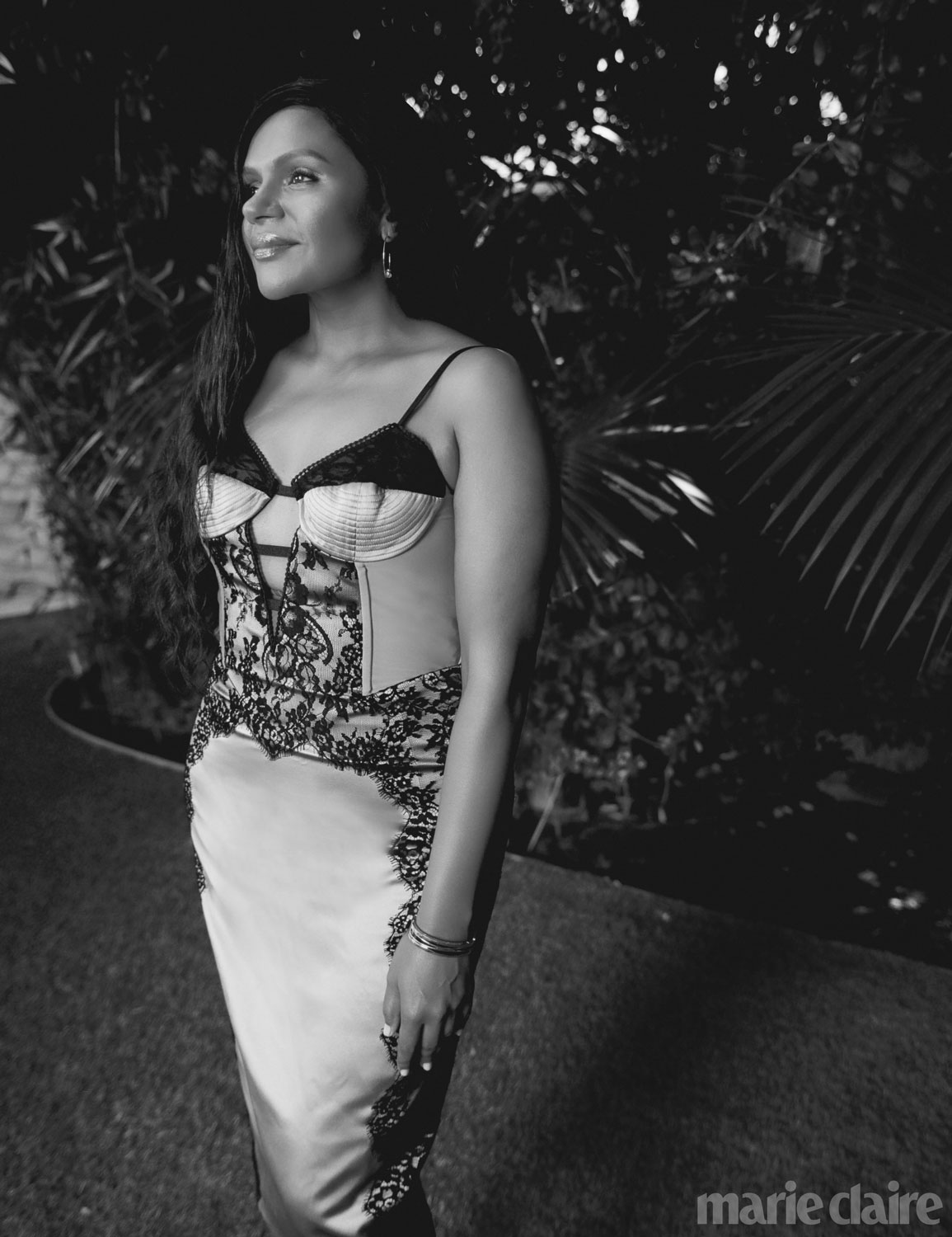
Gucci dress, Bulgari earrings and bracelet. For defined eyebrows, apply Brow Code Creamades Brow Pomade in Dark Brown ($28) and Brow Code Alias Brow Lamination Gel ($28) to set brow hairs.
Because of that unmistakable Kaling-tone, the actress is often conflated with the characters she plays. It would be safe, then, to assume that by not casting herself thus far on Never Have I Ever, Kaling’s persona would be safely hidden away. Rather, the show is arguably her most intimate work yet: a beautiful, hilarious, heartbreaking glimpse into her soul.
“Losing my mom and then wanting to talk about it in a way that is not as sad as the experience of going through it, but being able to be like, ‘If you went through anything like this, you could watch this and feel seen’—I think that was the goal,” she says of the series’ premise.
Bajaria, the Netflix exec who first worked with Kaling at NBC Universal on The Mindy Project, initially suggested that Kaling turn essays about her awkward childhood into fodder for a show. (The two are also good friends—Kaling’s HBO character Bela Malhotra is named after Bajaria.) Kaling returned with an audacious concept: a comedy about a tempermental Tamilian girl hell-bent on losing her virginity to the swim team star following the untimely death of her doting father and her resulting temporary paralysis. Bajaria never doubted Kaling’s ability to turn it into a “big, entertaining show.”
“Even when she shares a very specific, personal experience, in some ways, she really writes with an honesty that is funny and poignant but also deeply relatable,” Bajara adds. She attributes the global success of the show—according to her, the second season of Never Have I Ever charted in Netflix’s top 10 in 89 countries—to Kaling’s ability to marry “humor and heart.”
In its third season, premiering on August 12, the series, co-created by Lang Fisher, tackles a new phase of grief: What happens after the shock and debilitating sadness has worn off? How do you and can you move on?
“When [Devi] loses her father in the first season,” Kaling says, “the grief doesn't go away. He's always there. It's the same way I feel about my mom. I always am experiencing her loss. But the way I'm experiencing her loss now, the focus changes as it gets further and further away. I can now remember, not as much the times when she was sick and dying, but the lessons I learned from her when she was young and healthy. That's what I like to do in the show with Devi (Maitreyi Ramakrishnan) and her dad, Mohan (Sendhil Ramamurthy). Seeing her have happy memories of him and him giving her advice, I think was really important to do, instead only focusing on the anguish she felt losing her favorite parent.”
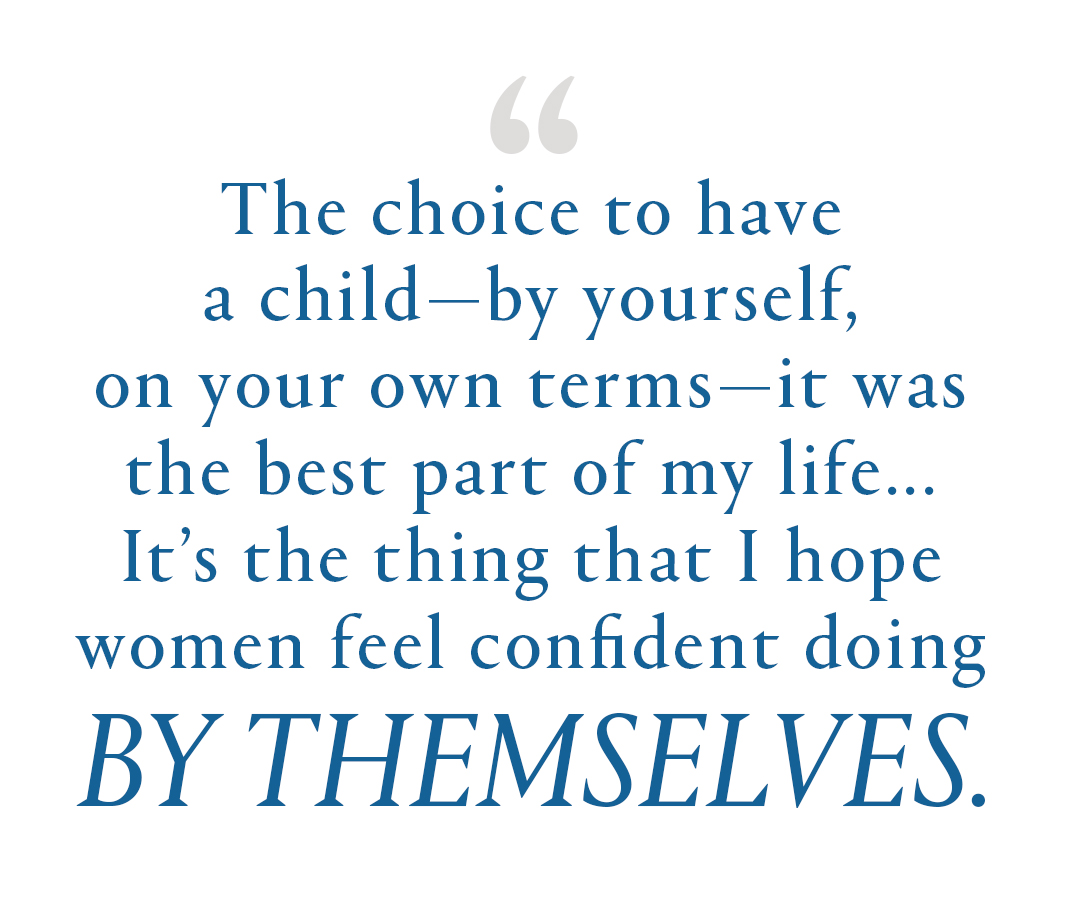
Those perspectives elevate the story far beyond its high school set-up (not that it doesn’t fully embrace and succeed in the teen genre), creating a universal and generation-panning story about loss, grief, and family dynamics. One that challenges cultural stereotypes: Kaling says that with Mohan’s character she and Fisher wanted to flip the narrative on Indian masculinity. With Nalani (Poorna Jagannathan), who Kaling says is a lot like her own mom, they wanted to present a less “black-and-white portrayal of immigrants,” focusing instead on a mom who could be both super traditional and also have “frank, open conversations with her daughter.”
Ultimately, it’s been an experience, Kaling says, in cathartic storytelling. “It's just a nice way to revisit my childhood a little bit, but through rose-colored lenses. And to be like, ‘Well, it could be like this...’”
Kaling is currently on the hunt for a good dosa tawa. She needs tips on getting the idlis out of the steamer. She’s making a wholehearted effort to cook more South Indian foods but the laborious nature of the recipes—crushing cardamom pods with a mortar-and-pestle; “I have to fucking get fenugreek?!”—is getting to her. Throughout our conversation, she repeatedly segues into all things desi: her hopes of enrolling Katherine in Indian dance; her plans to decamp to India for four months; her welcome-but-aunty-esque questions about my own immigrant experience. It’s a constant reminder of why Kaling has reached icon status in the brown community—not because of the awards and accolades or because she’s shared the screen with Oprah Winfrey, Rihanna, Reese Witherspoon, and Steve Carell (that helps)—but because she was the first chance South Asians had to be seen in Hollywood.
Because, in 2004, “there was nobody.” Kaling is referring to the lack of mentors—female or of color—she had available. There were just “open-minded white men” like Greg Daniels, who hired her at the age of 24 (she’s since referred to herself publicly as the “diversity hire”). The landscape was equally bleak on-screen, where it was rare to see a South Asian in primetime in a non-caricature role. (Kal Penn and Aziz Ansari were among her few contemporaries.)
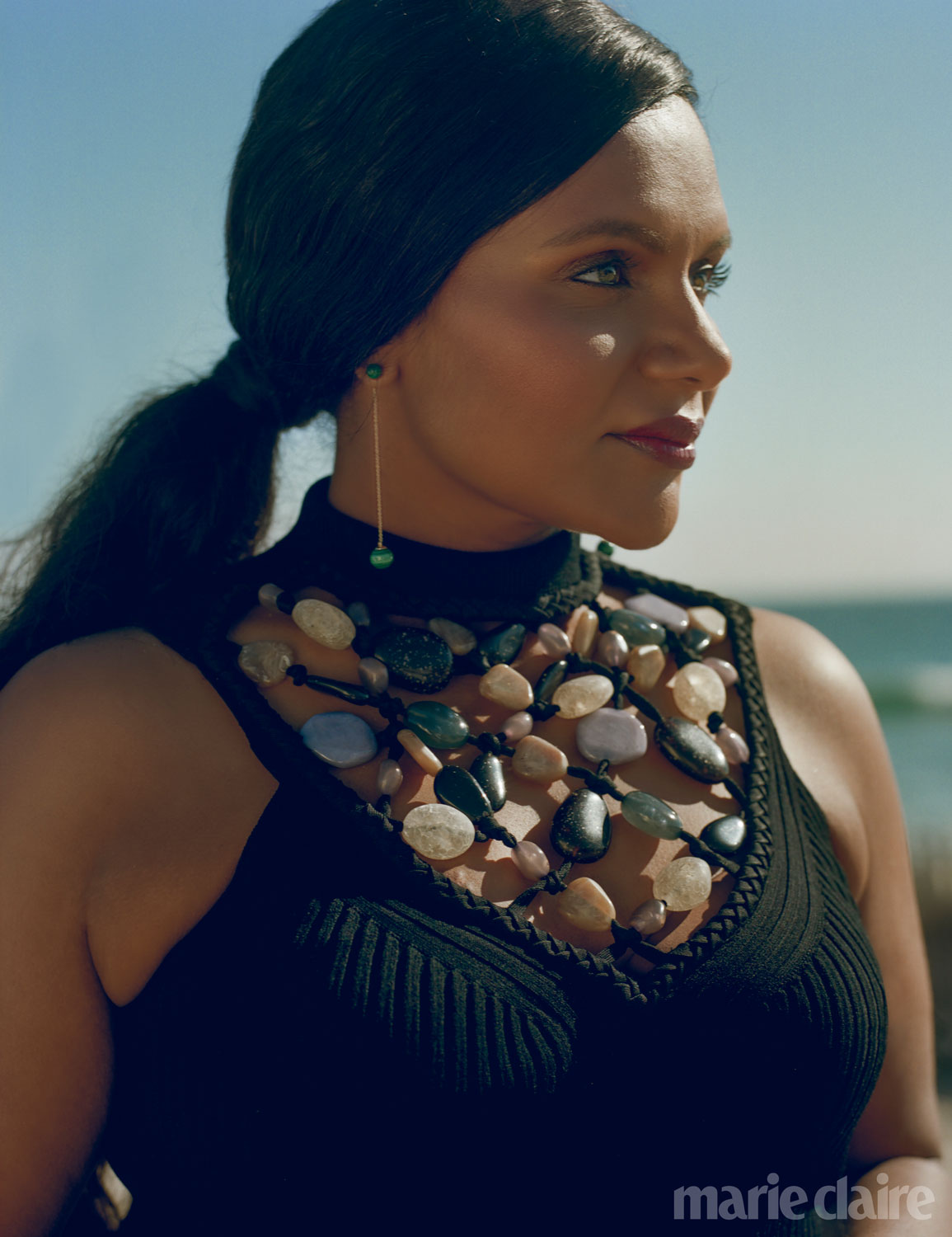
"I think the temptation to just go through your life, going through the motions and experiences, and not reflecting on anything—that’s very easy for me. Wellness is taking time to be like, Okay, I had that experience. How did that make me feel?" Jonathan Simkhai dress, Mateo earrings. For a smooth, flawless finish, apply Giorgio Armani Luminous Silk Foundation in 8.5 ($69) to highlight and 11.5 ($69) to contour.
She was at the forefront of a generation of “pioneers,” Priyanka Chopra tells Marie Claire, “who pushed open the doors and said, ‘Mainstream TV, here we come’…[Now] Hollywood's saying, ‘Okay, they're not just a check in the box or a character that you throw in there so that we can pretend to be diverse.’” Chopra calls Kaling’s work “instrumental” in paving the way for her own crossover career, as well as one of the reasons a cohort of younger South Asian actors have been able to dominate both silver and streaming screens.
Consider: Bridgerton’s Charithra Chandran and Simone Ashley. (“It's still refreshing and exciting to me to see a dark-skinned Indian woman as the lead of things,” Kaling says, interjecting, “I was like, ‘Finally, someone I could ask for foundation recommendations!’”) Or Iman Vellani from Ms. Marvel (a series Kaling praises for showing that the South Asian community is “not a monolith”). And her own show’s stars: Amrit Kaur on The Sex Lives of College Girls and Megan Suri on Never Have I Ever. When creating the Netflix show, she had to hold an open casting call to find the right talent for the lead. Just a couple of years later, Kaling says casting agents can regularly offer a handful of South Asian names for whatever the role may be.
She refuses to take all the credit for the proliferation of South Asians in western media. But she will delight in it. “I'm like, ‘Oh, great. I didn't have to produce it, write it, and staff it.’ It's just excellent, quality television that's out there that I have nothing to do with.”
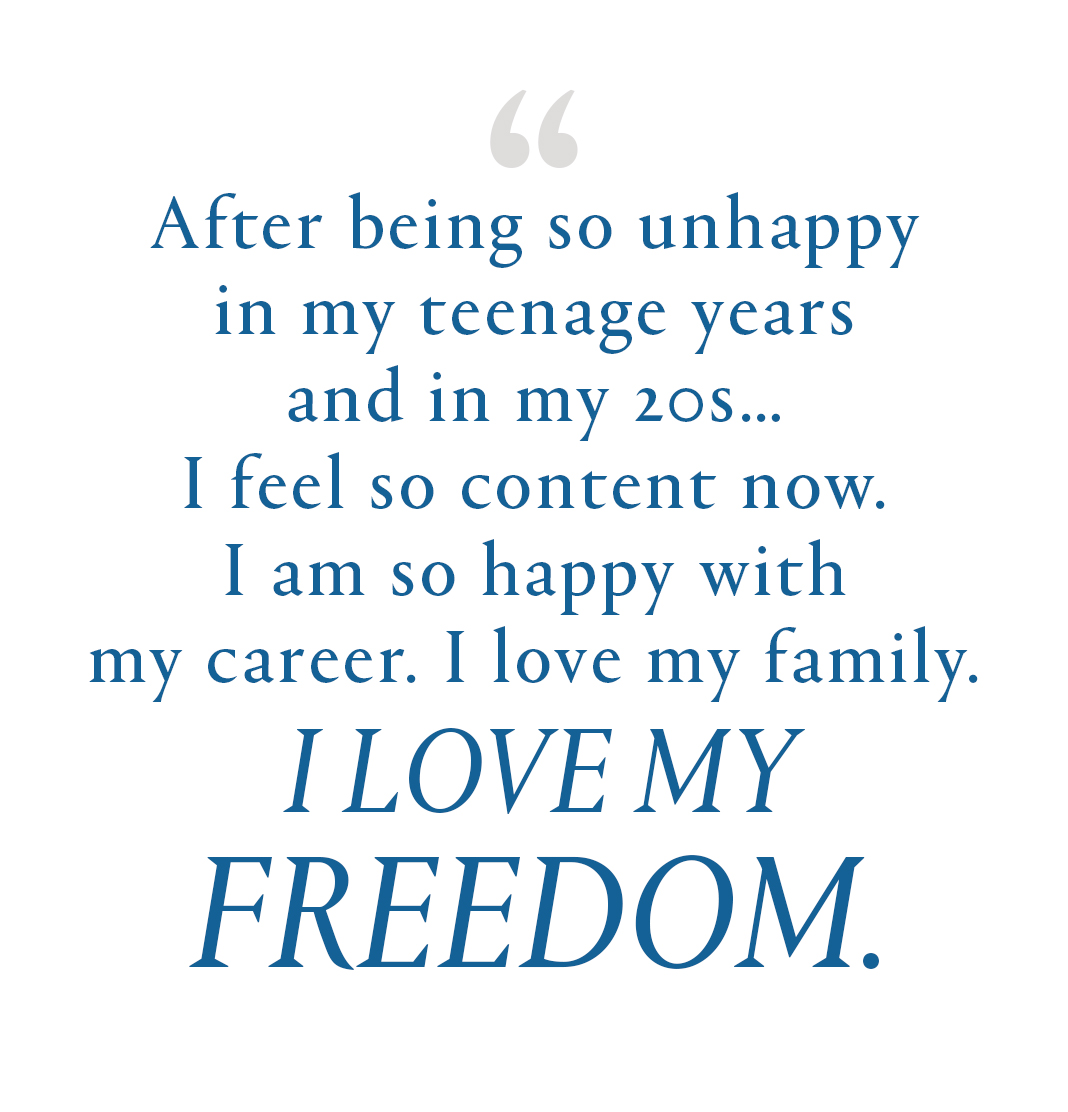
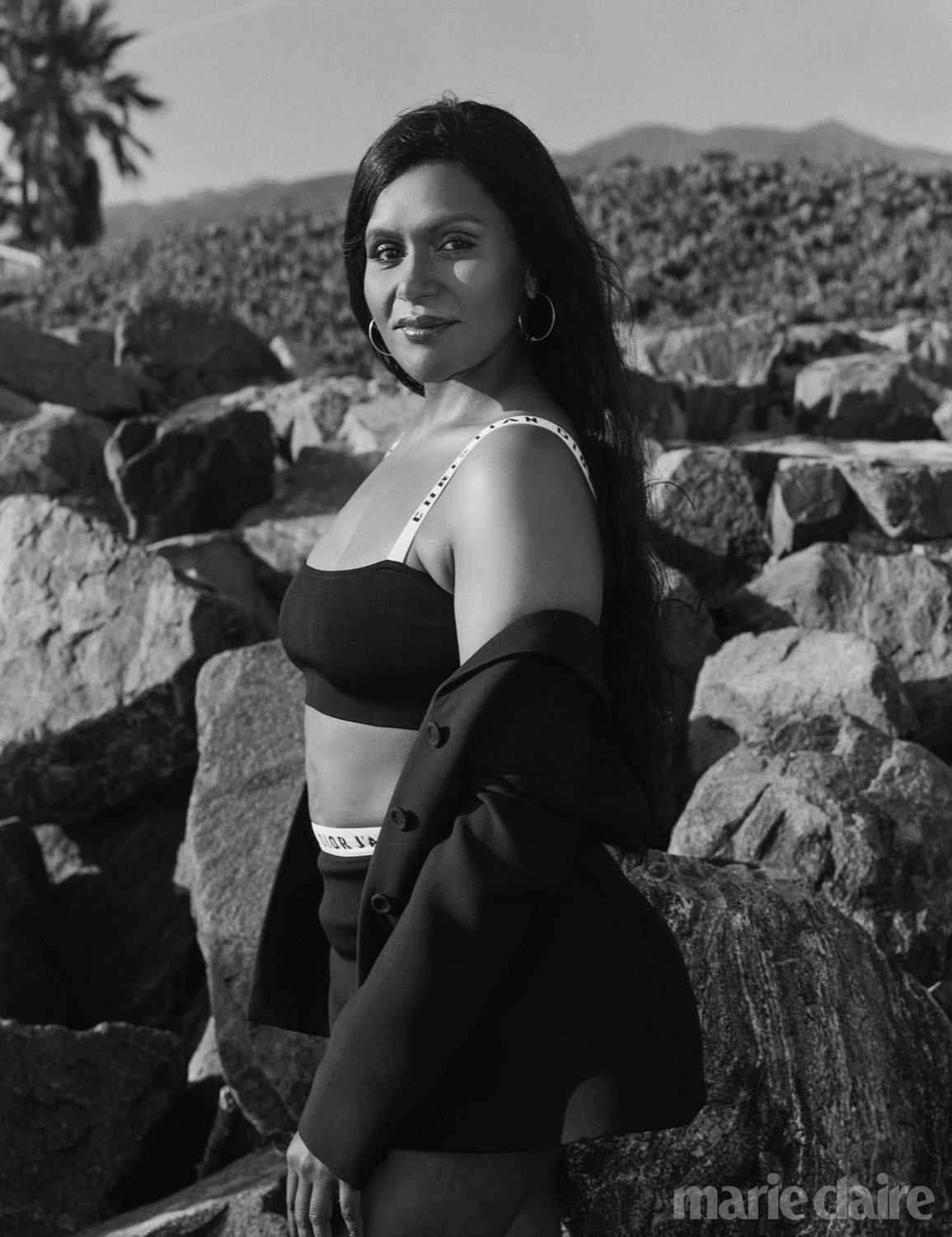
Dior jacket, bralet, and briefs, Bulgari earrings. For a "your lips but better" look, swipe on Huegloss in Proud ($20).
That doesn’t mean Kaling won’t continue to make her own projects spotlighting diverse talent and centering women of color. That’s exactly the goal of Kaling International, the tiny but mighty (it employs just four people, including Kaling) production company she launched in 2012. One of its tentpoles is fostering South Asian talent on and off screen, and giving her writers and actors the mentorship she struggled to find in her early years.
Ramakrishnan says Kaling has achieved that in spades, noting that the multi-hyphenate has made the Never Have I Ever set “a safe space” for her to learn as an industry newcomer. “[Mindy] made sure to hire people who are kind and empathetic, creating an environment where I never felt dumb or alone in the process,” the 20-year-old says. “[It’s] a true testament to her leadership and her priorities.”
In addition to Kaling International’s ongoing projects—Never Have I Ever will conclude after its fourth season, premiering in 2023; The Sex Lives of College Girls’s second season is currently in production—the company is developing Velma, an animated Scooby Doo spinoff in which Kaling will voice the lead; a comedy about a female exec in the LA Lakers’ front office; an HBO Max adaptation of Jennifer Weiner’s Good in Bed; and a rom-com about Indian weddings that Kaling wrote with Dan Goor and will star in alongside Chopra. “The movie,” Kaling says, “is a lot about the value that we put, particularly Indian women, on marriage. And how so much of our value is set on being married.” Kaling is also, separately, still working on the screenplay for Legally Blonde 3.
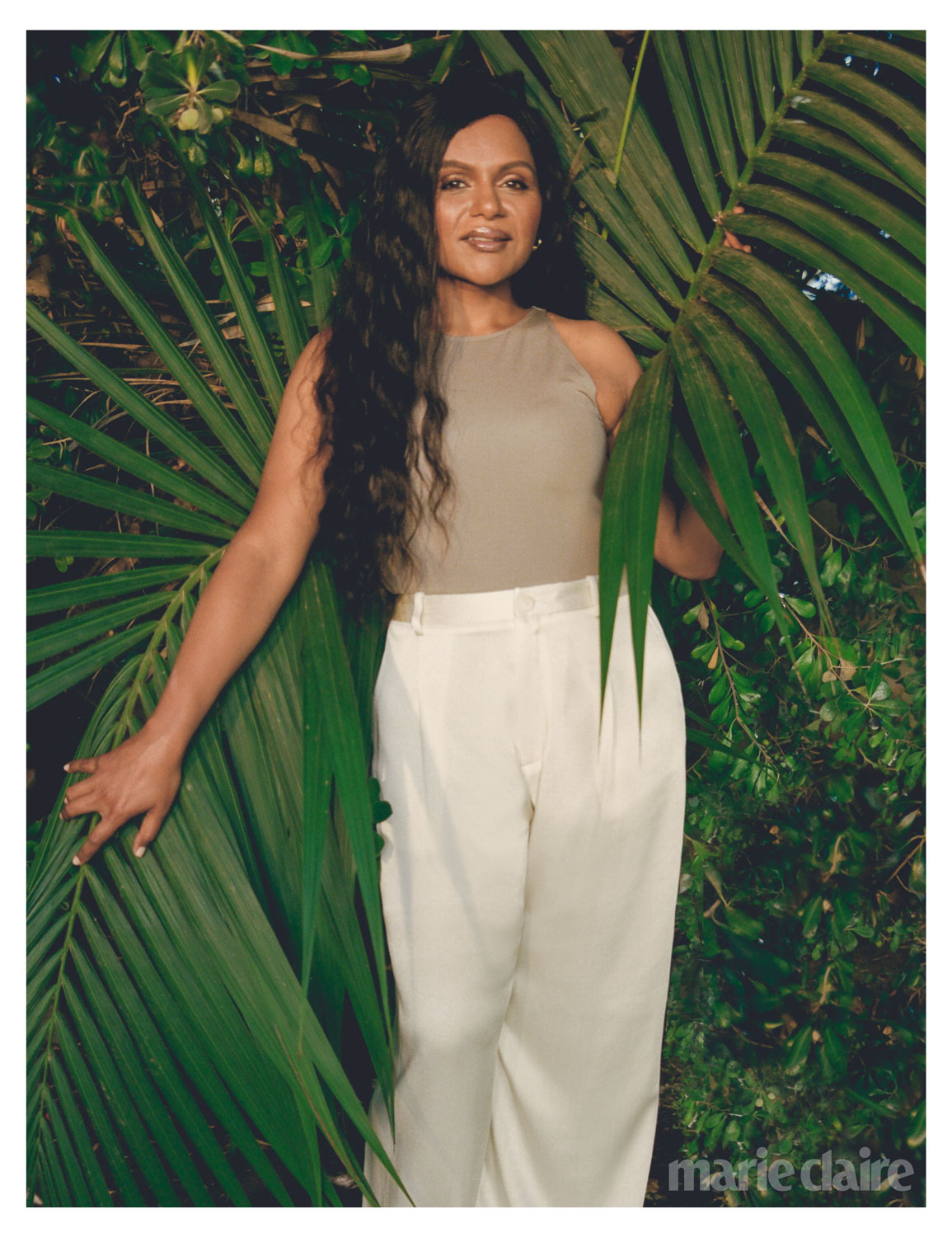
Lapointe bodysuit and pants, Bulgari earrings. For a soft and smoky eye, pair Live Tinted Huestick in Change ($24) with Huestick in Legacy ($24).
She’s even eyeing a genre jump into writing and producing dramas. (Bajara hints that a one-hour drama could be on the horizon for Kaling at Netflix.) Or at least a dark comedy, she says, name-checking Bill Hader, Michaela Coel, and Phoebe Waller-Bridge as inspirations for how they are interpreting material. “Their projects seem to be healing a wound of theirs. They're incredibly personal, and they're funny, but it feels like each project is making them grow as an artist, but [also] it's something they needed to do, emotionally.”
When asked what wound, if any, she'd be looking to heal with a similar foray, Kaling searches for an answer. “I'm sure there is. I haven't had time to sit and think about which one it is.”
She’d also be open to a comedy inspired by her life now: a single mom in her 40s, trying to find love because she hasn’t “ruled out romance.”
“Culture largely says, ‘We don't wanna hear about you. Your entire deal bums everyone out.’ If you're a 42-year-old [single] woman with kids, it makes people sad… I'm like, ‘There is hope for us. There could be great stories about women, like me, finding love, finding happiness…’ I can't imagine anyone besides me would write it, so I have to find the time to do that.”
“I think Mindy's a powerhouse,” Shonda Rhimes—whom Kaling counts as a mentor and friend—tells Marie Claire. “She sort of puts a friendly smile on it, but she is a powerhouse of a person in terms of what she accomplishes, what she sets out to do, and who she is as a person, and how hard she works.”
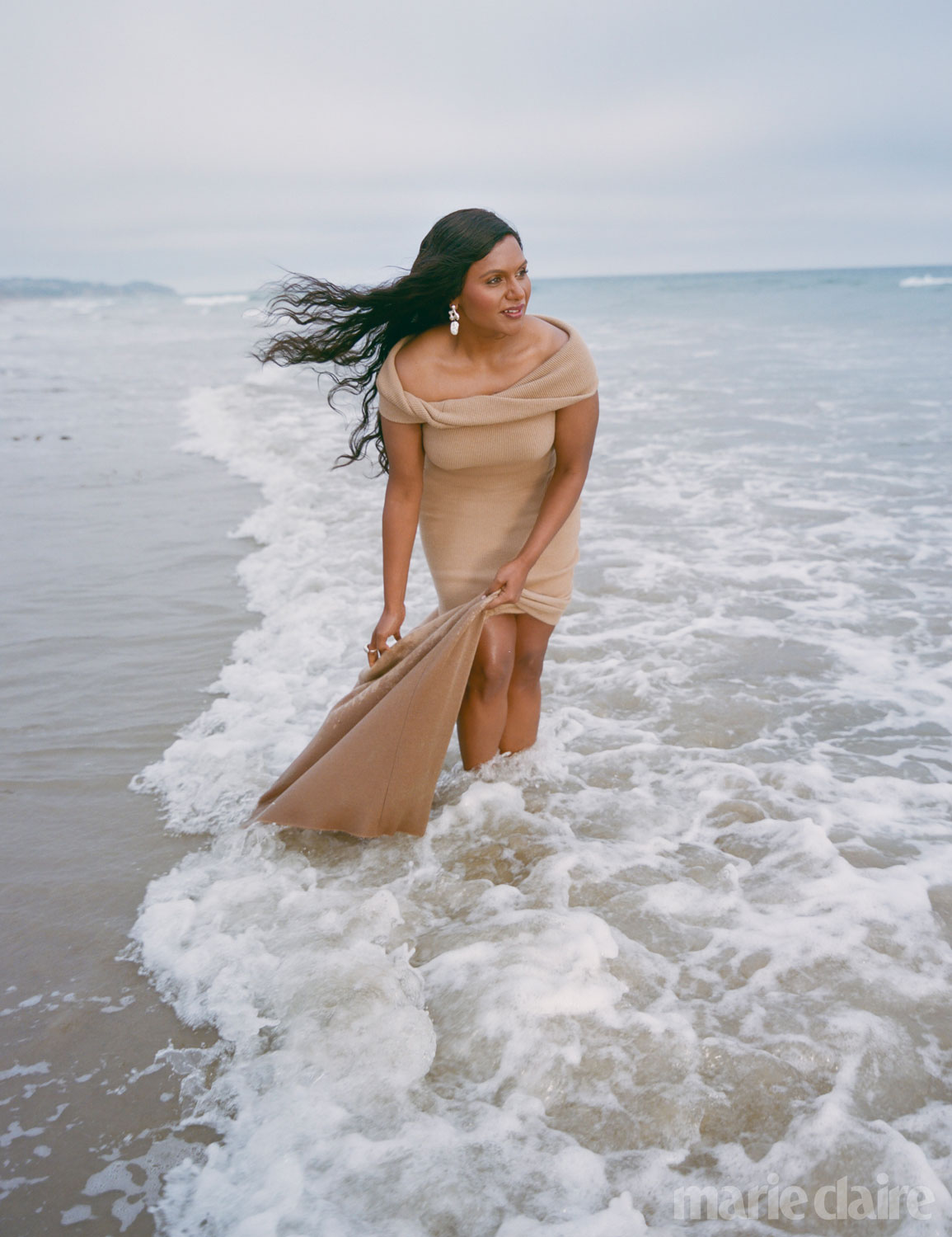
Brandon Maxwell gown, Agmes earrings, Khiry ring. For a subtle rosy flush add a swirl of Live Tinted Huebeam Blushing Bronzer Duo ($38) on cheeks and Unity Balm Gloss ($20) on cheekbones.
A few hours after our meal, Kaling is standing atop a sand dune in an ankle-length, kelly green Proenza Schouler dress posing for this photoshoot. Katherine and Spencer, shepherded by their nanny, splash nearby in the tide.
The kids gallop over, invading the frame. She laughs, letting them climb all over her. It sounds almost too good—like the unrealistic set-up to, well, a Kaling-penned rom-com. Like the cameras are about to pull back revealing glittering shots of the coastline, before our plucky heroine delivers her line.
“After being so unhappy in my teenage years and in my 20s…I feel so content now. I am so happy with my career. I love my family. I love my freedom—I have the freedom that comes with being financially stable, and I don't have to run anything by anybody.…I love going to set and watching these actors saying my words and coming up to me and asking my take on things…It’s beyond the wildest dreams that my late-mother could have hoped for me.”
It’s not a set-up, but it is, for all intents and purposes, the role Kaling’s written for herself and waited her whole life to play. One where she’s paid her dues and can call the shots.
Never has she ever been happier, she says.
Then, right on cue: “Oh, great. Now, like, an anvil's gonna fall on me.”
Mindy wears a Chloe dress and Bulgari accessories to play Pop Quiz.
Photographer: Kanya Iwana | Stylist: Hayley Atkin | Stylist Assistant: Jenna Remy | Hair: Marc Mena at Exclusive Artists | Makeup: Janice Kinjo at The Wall Group | Manicure: Alex Jachno at OPUS Beauty using Chanel Le Vernis | Executive Producer: David Lipford, Dual Phocus
Neha Prakash is Marie Claire's Entertainment Director, where she edits, writes, and ideates culture and current event features with a focus on elevating diverse voices and stories in film and television. She steers and books the brand's print and digital covers as well as oversees the talent and production on MC's video franchises like "How Well Do You Know Your Co-Star?" and flagship events, including the Power Play summit. Since joining the team in early 2020, she's produced entertainment packages about buzzy television shows and films, helped oversee culture SEO content, commissioned op-eds from notable writers, and penned widely-shared celebrity profiles and interviews. She also assists with social coverage around major red carpet events, having conducted celebrity interviews at the Met Gala, Oscars, and Golden Globes. Prior to Marie Claire, she held editor roles at Brides, Glamour, Mashable, and Condé Nast, where she launched the Social News Desk. Her pop culture, breaking news, and fashion coverage has appeared on Vanity Fair, GQ, Allure, Teen Vogue, and Architectural Digest. She earned a masters degree from the Columbia School of Journalism in 2012 and a Bachelor of Arts degree from The Pennsylvania State University in 2010. She lives in Manhattan with her husband and dog, Ghost; she loves matcha lattes, Bollywood movies, and has many hot takes about TV reboots. Follow her on Instagram @nehapk.